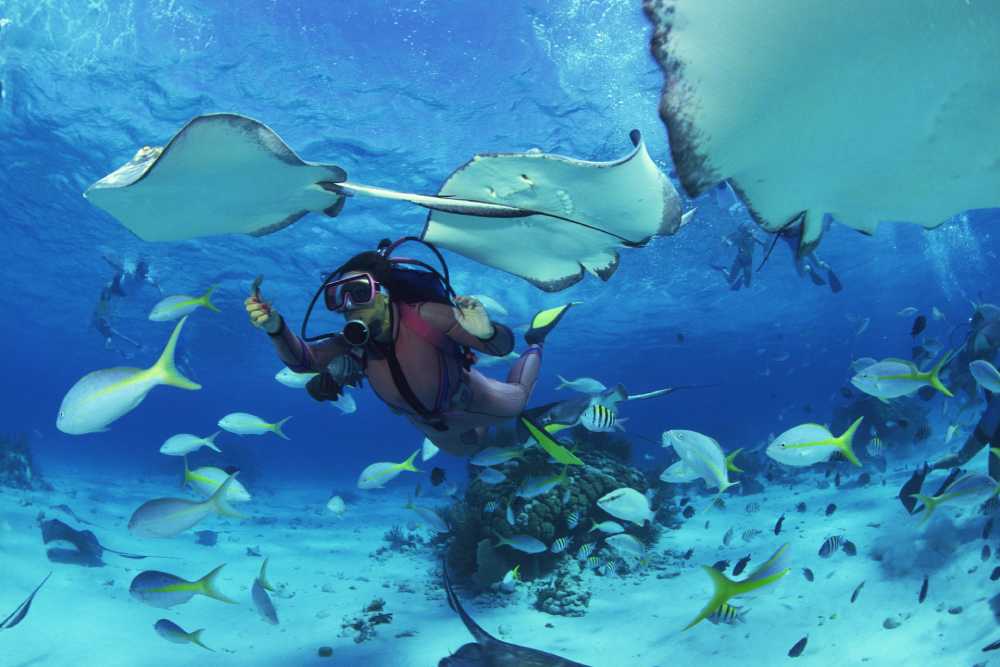Choosing the right destination is critical. Consider your skill level and the marine species you most desire to see. Consider staying at hotels that cater to scuba divers and have on-site dive centers.
Consider whether you want to take a liveaboard trip, witness nocturnal marine life, or explore caves. It’s also important to pick the best time of year to travel.
Know Your Limitations
While scuba diving is a fun and exciting activity, it can also be dangerous if you are not careful. Whether you are a beginner or an experienced diver, it is important to know your limits and not push yourself too far. Always dive within your certification level and take surface intervals between dives. Also, remember to respect marine life and follow local regulations.
Getting your gear serviced before a trip is also a good idea. This will ensure that everything is working properly and save you from paying for any repairs during your vacation. Also, check the baggage allowance on your flights before booking if you are bringing your equipment.
Finally, it is important to research the weather conditions at your destination before planning scuba diving in the Grand Cayman Islands. Some destinations have certain times of year when the conditions are better than others. This may be due to the weather or because particular marine species only inhabit certain seasons of the year.
Plan Ahead
Imagine waking up before sunrise, preparing your gear with a buddy, and taking a giant step off the back of the dive boat into crystal-clear water just as the sun teases the sky above you. That’s the sort of trip you’ll want to remember forever, and it’s worth making a few early decisions to ensure your scuba diving adventure lives up to expectations.
Start by choosing the right destination for your diving goals. You might have a specific marine species that you’re hoping to see, so do your research on where they occur naturally. Also, consider whether you’ll want to stay at a dedicated dive resort (often the easiest option for families) or travel independently from your hotel and directly to a trusted local dive center.
You’ll also need to think about what flights you’ll be taking, as divers should wait at least 13 hours after a single dive and longer after multiple dives before flying to avoid the risk of Decompression Sickness. It’s also a good idea to buy travel insurance, make sure your medical and diving equipment are covered, and pack some essential non-diving items like a hat and polarized sunglasses.
Prioritize Your Dives
There are many different dive destinations, and the number of options can be overwhelming. To narrow down the list of potential destinations, start by considering the type of diving experience you want. For example, to explore coral reefs, consider a trip to Milne Bay in Papua New Guinea or Balicasag in the Philippines.
Once you have a shortlist of possible destinations, research the best time to visit. Some locations may only offer diving at certain times of the year due to weather patterns or seasonal restrictions. In addition, if you are hoping to see specific marine species, make sure that the location you are considering has them in abundance during your vacation.
Finally, be sure to take care of yourself both physically and mentally before your trip. Eat a healthy diet, get plenty of rest before your departure, and consider taking a refresher course if it’s been a while since your last dive. Finally, invest in travel insurance to protect you in an emergency while on your trip.
Be Prepared for Unexpected Changes
Whether you’re diving land-based or on a liveaboard, unexpected changes can always affect your plans. Weather conditions can change quickly; if you’re not prepared, you may have to cancel your dive or switch sites. Having a backup plan is also important if something goes wrong with your equipment or you’re not feeling well during a dive.
If you have a medical condition that could interfere with your diving, take care of it before you leave for your trip. Make sure you have your prescriptions filled, complete your PADI medical statement, and have hard copies of all confirmation e-mails and reservation numbers if you need to show them at the dive shop when you arrive.
Taking the time to prepare for your scuba diving in the Grand Cayman Islands will help ensure an amazing experience. By following these tips, you can relax and enjoy your adventure, knowing everything is handled! Now, have some fun in the water! And remember to pack your underwater camera to capture those beautiful marine creatures for your friends and family back home.
Be Flexible
When planning a diving vacation, it’s best to be flexible and expect the unexpected. It’s easy to get frustrated when your dream destination turns out differently than expected. But you can still have a wonderful trip with a little patience and flexibility!
For example, if you’re traveling abroad, don’t be disappointed if the weather is bad. It’s possible to see some amazing sites even in the rain!
Similarly, be flexible with the accommodation you choose. Do a bit of research on the hotels near key dive spots and compare rates. Booking a hotel close to a scuba center will save you money on hotel and dive package deals.
Another way to be flexible is to pack your food instead of dining out in the resort restaurants. It’s a great way to save money, reduce waste, and observe the local food preparation methods! Moreover, if you’re a diver, practicing yoga or meditation before your trips will improve your breath control and allow you to stay underwater longer.



